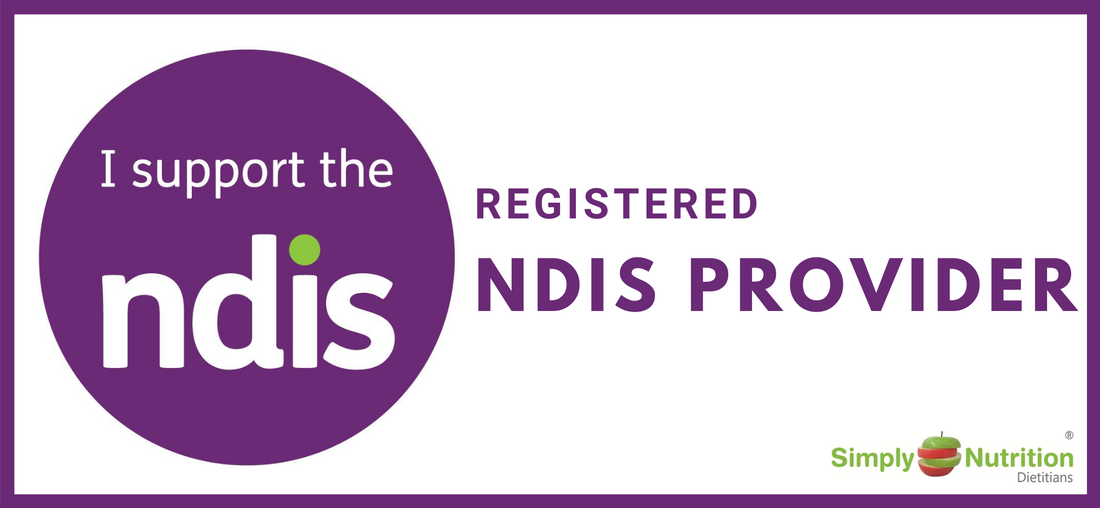High Cholesterol and Cardiovascular Disease Assistance
What is cardiovascular disease?
Cardiovascular disease encompasses a range of conditions including, but not limited to, coronary heart disease, stroke, heart failure, atrial fibrillation and rhematic heart disease.
Smoking, physical inactivity, poor diet, excessive alcohol consumption, obesity, diabetes, high blood pressure and high cholesterol are all major risk factors for developing cardiovascular disease.
According to the Australian Institute of health and welfare, cardiovascular disease is the leading cause of death in Australia however many of the associated risk factors can be reduced by following a healthy diet and participating in exercise. High cholesterol in particular can be reduced with the help of a Simply Nutrition Dietitian, who can work with you to make a few small changes to your diet and reduce your risk of cardiovascular disease.
What is cholesterol and what does it mean if you have high cholesterol?
Cholesterol is a type of fat that is produced by the liver and is required by the body for a variety of metabolic processes. In the body there are two types of cholesterol. LDL cholesterol, which is the bad type of cholesterol; and HDL cholesterol, which is the good type of cholesterol
The saturated fat or ‘bad fat’ in our diet increases the amount of LDL cholesterol in the body. Too much LDL cholesterol can result in fatty deposits that build up in our arteries causing the blood vessels to narrow, which if left untreated can lead to a blockage.
The unsaturated fat or ‘good fat’ in our diet helps to remove excess cholesterol build up from our arteries and help prevent a blockage from occurring. A Simply Nutrition Dietitian can assist in detailing the different types of fats and how to swap foods that you are currently eating with healthier choices.
How can a Simply Nutrition Dietitian help you?
The Dietitians at Simply Nutrition can work closely with you to -
2. Increase the unsaturated fat in your diet in accordance with your likes and dislikes
3. Improve other dietary factors which may be playing a role in your high cholesterol
Cardiovascular disease encompasses a range of conditions including, but not limited to, coronary heart disease, stroke, heart failure, atrial fibrillation and rhematic heart disease.
Smoking, physical inactivity, poor diet, excessive alcohol consumption, obesity, diabetes, high blood pressure and high cholesterol are all major risk factors for developing cardiovascular disease.
According to the Australian Institute of health and welfare, cardiovascular disease is the leading cause of death in Australia however many of the associated risk factors can be reduced by following a healthy diet and participating in exercise. High cholesterol in particular can be reduced with the help of a Simply Nutrition Dietitian, who can work with you to make a few small changes to your diet and reduce your risk of cardiovascular disease.
What is cholesterol and what does it mean if you have high cholesterol?
Cholesterol is a type of fat that is produced by the liver and is required by the body for a variety of metabolic processes. In the body there are two types of cholesterol. LDL cholesterol, which is the bad type of cholesterol; and HDL cholesterol, which is the good type of cholesterol
The saturated fat or ‘bad fat’ in our diet increases the amount of LDL cholesterol in the body. Too much LDL cholesterol can result in fatty deposits that build up in our arteries causing the blood vessels to narrow, which if left untreated can lead to a blockage.
The unsaturated fat or ‘good fat’ in our diet helps to remove excess cholesterol build up from our arteries and help prevent a blockage from occurring. A Simply Nutrition Dietitian can assist in detailing the different types of fats and how to swap foods that you are currently eating with healthier choices.
How can a Simply Nutrition Dietitian help you?
The Dietitians at Simply Nutrition can work closely with you to -
- Complete a comprehensive diet history and provide you with suggestions to:
2. Increase the unsaturated fat in your diet in accordance with your likes and dislikes
3. Improve other dietary factors which may be playing a role in your high cholesterol
- Make other helpful lifestyle suggestions regarding your diet and exercise regime
- A Simply Nutrition Dietitian only uses evidence based guidelines when giving advice so you can be assured that the information provided to you has been extensively researched.

